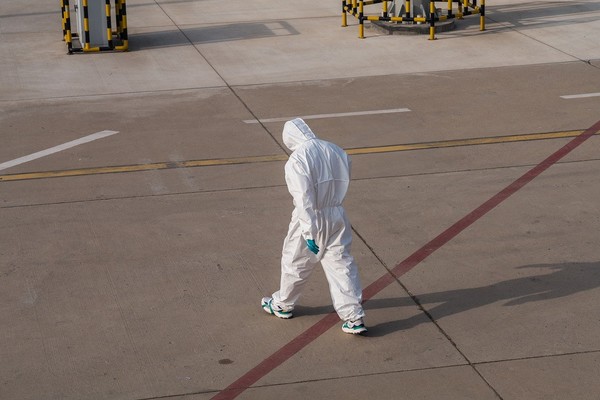The U.S. Food and Drug Administration highly evaluated Korea’s responses to Covid-19, saying that the country’s experiences from the SARS and the MERS helped it contain the pandemic’s spread.

In a report released on Tuesday, the U.S. regulatory agency pointed out that the Korean Ministry of Science and ICT has invested almost 27 billion won ($24.2 million) in developing technology for diagnosing infectious disease since 2017.
“Rapid response processes designed by the health authorities in Korea and investments made in research, development, and commercial test production allowed the nation to maintain a low number of confirmed cases,” the FDA said. “The Korean government also designed an emergency use authorization program to model the system used in the U.S. and allowed the temporary production, sale, and use of test kits during the Covid-19 pandemic when the country had no approved tests available.”
Korea prioritized early detection of infected people with the temporarily approved test kits, and the private companies continued to shorten the diagnosis time down to hours. The first test kits developed in January 2020 took one to two days for diagnosis.
Several diagnostics companies also received investments from the government for developing Covid-19 test kits, which speeded up the supply afterward, FDA said.
“The mass and early testing helped the government run a rigorous tracing program built on information technology systems, collecting and analyzing personal data, including credit card transactions and CCTV records,” it said.
The FDA also noted that Korea made a national stockpile plan for distributing medical resources after the severe acute respiratory syndrome hit the nation in 2009. Upon the outbreak of the Middle East Respiratory Syndrome in 2015, the country developed the stockpiling management plans into a five-year strategic national stockpile plan.
Another factor the FDA cited was the quickly designed and implemented core strategy comprised of testing, tracing, and treatment, called the “3Ts.”
FDA noted that the 3Ts were to “prevent the spread of the disease, protect public health, keep the society and economy open, and thereby allow daily life to continue.” The 3Ts was built on an information technology system and the nation’s effort to place suspected patients under a self-quarantine state.
Epidemiologic investigations used the information and analyzed personal data quickly identified paths and modes of transmission of suspected cases.
When the public raised concern about possible invasions of privacy, the government assured them, saying it would only keep the information for 14 days. The Korean government reported that automating the systems necessary for tracing has reduced the time required to analyze data from 24 hours per case to 10 minutes.
FDA also emphasized that less than 0.2 percent of those who were in self-quarantine violated the rules. As of Sept. 22, 2020, 686,198 cases had been placed under self-quarantine, and only 1,139 of those were identified to have violated the requirements of self-quarantine.
“South Korea also attributes its successful pandemic response to the active participation of its citizens, with openness, transparency, civic engagement, and innovativeness,” the FDA said in the report titled “South Korea’s Response to Covid-19.”

